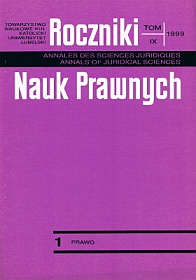The State of the Emergency of the Natural Environment and its Wide Characteristic
Abstract
This paper we present above show an actual situation in the natural environment with the state of the emergency which was made by all people on the Earth. We mean here the pollution of air, bad state of water, waste, noise, electromagnetic spaces and the quality of many of our rivers has been considerably deteriorated. In the international aspect of these kind of problems with polluted environmental surroundings, we the people living now and here, it means on the Earth, we should recognize the state of the emergency around us. What is going on? For example: urban pollution, where a river runs through an industrial area and is degraded by litter, dirty road and factory yard runoff water, is also a countinuing problem. For the future we have to see some radical re-thinking. Especially by law regulations to improve the state of waste management there should be reminded for all to know and understand an actual situation. People should be thinking about next generations which would have no other planet to live on. The ethical imperative to keep good conditions to protection of the natural environment problems is clear. That is a very important obligation „We must keep order in nature”! When some people look into a trash bag, they see things like plastic, paper, metal, glass, and food waste. We can see our whole world being thrown away and littered on. At both the global level and the local level, these warning signals are delivering the same message: We can’t run a throwaway society on a finite planet. We mean that the world society cannot make economic and industrial decisions and continue global activities which could cause and lead to a finite of our planet. We don’t want the conditions on the Earth which make impossible the life and exist for people. Nature makes no waste, only a man living on the Earth. This paper presented a few fields, where we need to improved the state of it. They are as follow: air, water, atmosphere, noise, waste, forests, and tropical forests, animals and we need organize the environmental startegy to improve the conditions of it.The problem is how we use water resources in such a way as to sustain them for the benefit of the future generations. In this circle of problems which are connected with the environmntal protection in the international aspect, there is still some way to go, however, and progress will ultimately depend on how much money the public is willing to spend on such work. In final part of our reflections we have said, that different categories of people need to sustain suitable environmental problems education. I mean here children in school, young people, and all the other too. We can point out the following tasks to improving environmental actions in global situation; They are as follow: our close working with local authorities; our ability and willingness to prosecute in certain circumstances; our approach in areas of widespread historical pollution. We believe it is the most important to work closely with both public and private sector organisations. Because we need it for future. God is the Master of the universe and nature. The most important of all things, is the fact, the man should remember that God is our Creator, and natural environment and man were made by the same Creator. We ought to exist with nature together in a harmony. Generally we can say, that our paper is divided into nine sections. They are as follow: 1. Symptoms of the state of the ecological emergency; 2. What kinds of natural resources? 3. Who is an author of the ecological emergency in the natural environment? 4. Visions which are doing the state of the ecological emergency; 5. Spaces of emergency; 6. Interference of the Man into circle of the nature; 7. Poisoned components of human life: a. Soil; b. Water; c. Air; d. Forests; e. Noise problems and electromagnetic spaces; 8. A plan of the strategy to recognize the proecological activities and an adequate environmental education; 9. Appeal to all people about the environmental protection.
Copyright (c) 1999 Roczniki Nauk Prawnych

This work is licensed under a Creative Commons Attribution-NonCommercial-NoDerivatives 4.0 International License.


